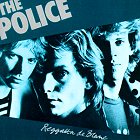 A&M Records releases the The Police’s second album, Reggatta de Blanc, featuring the single “Message In A Bottle”.
A&M Records releases the The Police’s second album, Reggatta de Blanc, featuring the single “Message In A Bottle”. ![]()

 A&M Records releases the The Police’s second album, Reggatta de Blanc, featuring the single “Message In A Bottle”.
A&M Records releases the The Police’s second album, Reggatta de Blanc, featuring the single “Message In A Bottle”. ![]()
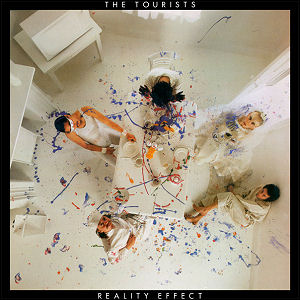 Epic Records releases Reality Effect, the second album by British new wave band The Tourists (featuring future Eurythmics Annie Lennix and Dave Stewart). The album features the singles “So Good To Be Back Home Again” and a cover of “I Only Want To Be With You”, which charts in the UK.
Epic Records releases Reality Effect, the second album by British new wave band The Tourists (featuring future Eurythmics Annie Lennix and Dave Stewart). The album features the singles “So Good To Be Back Home Again” and a cover of “I Only Want To Be With You”, which charts in the UK. ![]()
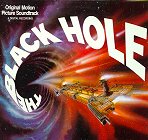 Disneyland Records releases an LP with selections from John Barry’s soundtrack for the movie The Black Hole, the first movie soundtrack ever recorded digitally. If anything, the music proves to be more enduring than the film it was meant to accompany, though Disney allows it to go out of print, never re-releasing it in any other format. A complete version will finally arrive on CD in 2011.
Disneyland Records releases an LP with selections from John Barry’s soundtrack for the movie The Black Hole, the first movie soundtrack ever recorded digitally. If anything, the music proves to be more enduring than the film it was meant to accompany, though Disney allows it to go out of print, never re-releasing it in any other format. A complete version will finally arrive on CD in 2011.
 Mushroom Records releases the Split Enz compilation album, Beginning Of The Enz. Rather than a straightforward “greatest hits” album, this LP gathers nearly all of the band’s early singles and B-sides recorded and released in the early ’70s prior to their first album. At the same time this album hits stores, Split Enz is back in the recording studio working on their next album, True Colours.
Mushroom Records releases the Split Enz compilation album, Beginning Of The Enz. Rather than a straightforward “greatest hits” album, this LP gathers nearly all of the band’s early singles and B-sides recorded and released in the early ’70s prior to their first album. At the same time this album hits stores, Split Enz is back in the recording studio working on their next album, True Colours. ![]()
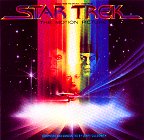 CBS Records releases an LP of selections from Jerry Goldsmith’s soundtrack from Star Trek: The Motion Picture, one of the earliest fully-digitally-recorded albums of any kind, soundtrack or otherwise. Thanks mainly to Goldsmith’s energetic main title, the album becomes a best-seller; many fans start to regard the music as the best part of the movie. Two reissues follow, culminating in a fan-pleasing 2012 release of the complete score.
CBS Records releases an LP of selections from Jerry Goldsmith’s soundtrack from Star Trek: The Motion Picture, one of the earliest fully-digitally-recorded albums of any kind, soundtrack or otherwise. Thanks mainly to Goldsmith’s energetic main title, the album becomes a best-seller; many fans start to regard the music as the best part of the movie. Two reissues follow, culminating in a fan-pleasing 2012 release of the complete score. ![]()
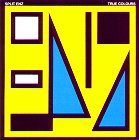 Mushroom Records releases the first Split Enz album of the 1980s, True Colours. Produced by future Prince protege David Tickle, the album gives the band a new sound and includes what will become its signature worldwide hit, “I Got You” (written by Neil Finn, who now alternates songwriting and lead vocal duties with his older brother, Enz co-founder Tim Finn). The album is released with eight different color variations, and is the first laser-etched LP. The album also suddenly draws the attention of American labels, resulting in A&M signing up to issue the band’s future output in North America.
Mushroom Records releases the first Split Enz album of the 1980s, True Colours. Produced by future Prince protege David Tickle, the album gives the band a new sound and includes what will become its signature worldwide hit, “I Got You” (written by Neil Finn, who now alternates songwriting and lead vocal duties with his older brother, Enz co-founder Tim Finn). The album is released with eight different color variations, and is the first laser-etched LP. The album also suddenly draws the attention of American labels, resulting in A&M signing up to issue the band’s future output in North America. ![]()
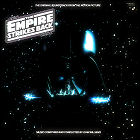 RSO Records releases a double LP of John Williams’ soundtrack from The Empire Strikes Back, a full month in advance of the movie’s release. The booklet-style album cover includes an extensive interview with Williams, as well as numerous notes on the making of a movie the public has yet to see.
RSO Records releases a double LP of John Williams’ soundtrack from The Empire Strikes Back, a full month in advance of the movie’s release. The booklet-style album cover includes an extensive interview with Williams, as well as numerous notes on the making of a movie the public has yet to see.
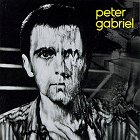 Peter Gabriel‘s third self-titled solo album is released by Charisma Records (and, in the United States, by Mercury). The album reunites Gabriel with former Genesis bandmate Phil Collins, and features his earliest collaborations with Kate Bush; the single “Games Without Frontiers” becomes a hit in Europe.
Peter Gabriel‘s third self-titled solo album is released by Charisma Records (and, in the United States, by Mercury). The album reunites Gabriel with former Genesis bandmate Phil Collins, and features his earliest collaborations with Kate Bush; the single “Games Without Frontiers” becomes a hit in Europe. ![]()
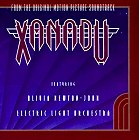 MCA Records releases an album of songs from the upcoming movie musical Xanadu, with the first side of the LP devoted to songs performed by Electric Light Orchestra, and the other filled with songs by Olivia Newton-John (who also stars in the film). Hit singles from the album include the ELO/ONJ team-up “Xanadu”, Olivia Newton-John’s “Magic”, and ELO’s “All Over The World” and “I’m Alive”. The album is a bigger hit with critics and the public than the movie (which premieres well after the album’s release).
MCA Records releases an album of songs from the upcoming movie musical Xanadu, with the first side of the LP devoted to songs performed by Electric Light Orchestra, and the other filled with songs by Olivia Newton-John (who also stars in the film). Hit singles from the album include the ELO/ONJ team-up “Xanadu”, Olivia Newton-John’s “Magic”, and ELO’s “All Over The World” and “I’m Alive”. The album is a bigger hit with critics and the public than the movie (which premieres well after the album’s release). ![]()
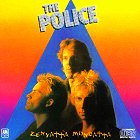 A&M Records releases Zenyatta Mondatta, the third album by The Police, featuring the singles “Don’t Stand So Close To Me” and “De Do Do Do, De Da Da Da”.
A&M Records releases Zenyatta Mondatta, the third album by The Police, featuring the singles “Don’t Stand So Close To Me” and “De Do Do Do, De Da Da Da”. ![]()
 The Alan Parsons Project releases its fifth album, The Turn Of A Friendly Card, including the hit singles “Time” and “Games People Play”.
The Alan Parsons Project releases its fifth album, The Turn Of A Friendly Card, including the hit singles “Time” and “Games People Play”. ![]()
 RSO Records, the label responsible for releasing the Star Wars movie soundtracks to date, releases the Star Wars novelty tie-in album Christmas In The Stars. Produced by Meco Menardo (of Star Wars disco cover fame), the album not only answers the age-old question of what to get a Wookiee for Christmas when he already has a comb, but is the first credited studio session work of future rock god Jon Bon Jovi (credited on the LP under his given name, Jon Bongiovi).
RSO Records, the label responsible for releasing the Star Wars movie soundtracks to date, releases the Star Wars novelty tie-in album Christmas In The Stars. Produced by Meco Menardo (of Star Wars disco cover fame), the album not only answers the age-old question of what to get a Wookiee for Christmas when he already has a comb, but is the first credited studio session work of future rock god Jon Bon Jovi (credited on the LP under his given name, Jon Bongiovi). ![]()
 Elektra Records releases an album of rock group Queen‘s soundtrack from the cult science fiction classic Flash Gordon. The album, which omits Howard Blake’s orchestral score and leads off with the single “Flash’s Theme”, is a European chart-topper (and gets a surprising amount of airplay elsewhere for a mostly-instrumental soundtrack album).
Elektra Records releases an album of rock group Queen‘s soundtrack from the cult science fiction classic Flash Gordon. The album, which omits Howard Blake’s orchestral score and leads off with the single “Flash’s Theme”, is a European chart-topper (and gets a surprising amount of airplay elsewhere for a mostly-instrumental soundtrack album). ![]()
![]()
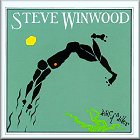 Island Records releases Steve Winwood‘s second solo album, Arc Of A Diver, on New Years’ Eve. Featuring the singles “While You See A Chance” and “Arc Of A Diver” and “Night Train”, the album is performed and produced entirely by Winwood, working in his home studio.
Island Records releases Steve Winwood‘s second solo album, Arc Of A Diver, on New Years’ Eve. Featuring the singles “While You See A Chance” and “Arc Of A Diver” and “Night Train”, the album is performed and produced entirely by Winwood, working in his home studio. ![]()
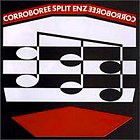 A Split Enz album with identity issues, the group’s sixth studio album is released as Corroboree in Australia and New Zealand, and as Waiata in all other territories. Again produced by David Tickle, this album continues with the punchier True Colours sound and yields the international hit “History Never Repeats”, whose video becomes one of the very first ever played by a new American music video channel, MTV.
A Split Enz album with identity issues, the group’s sixth studio album is released as Corroboree in Australia and New Zealand, and as Waiata in all other territories. Again produced by David Tickle, this album continues with the punchier True Colours sound and yields the international hit “History Never Repeats”, whose video becomes one of the very first ever played by a new American music video channel, MTV. ![]()
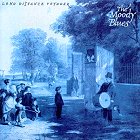 Decca Records releases the tenth Moody Blues album, Long Distance Voyager, featuring the singles “Gemini Dream” and “The Voice”.
Decca Records releases the tenth Moody Blues album, Long Distance Voyager, featuring the singles “Gemini Dream” and “The Voice”. ![]()
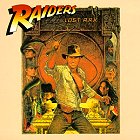 Columbia Records releases an album of John Williams‘ soundtrack from Raiders Of The Lost Ark in advance of the movie’s theatrical premiere.
Columbia Records releases an album of John Williams‘ soundtrack from Raiders Of The Lost Ark in advance of the movie’s theatrical premiere. ![]()
 Columbia Records releases Bob Sakuma‘s soundtrack from the early ’70s TV anime Kagaku Ninjatai Gatchaman (Science Ninja Team Gatchaman), better known to the western world in its significantly-altered dubbed (and partially re-scored) version, Battle Of The Planets. (A separate Battle Of The Planets release, combining Sakuma’s music with that of American composer Hoyt Curtin, will occur early in the 21st century.)
Columbia Records releases Bob Sakuma‘s soundtrack from the early ’70s TV anime Kagaku Ninjatai Gatchaman (Science Ninja Team Gatchaman), better known to the western world in its significantly-altered dubbed (and partially re-scored) version, Battle Of The Planets. (A separate Battle Of The Planets release, combining Sakuma’s music with that of American composer Hoyt Curtin, will occur early in the 21st century.) ![]()
 Electric Light Orchestra‘s ninth album, the science fiction/time travel concept album Time, is released, featuring the singles “Hold On Tight”, “Here Is The News” and “Twilight”. For the first time, almost all of the album’s string parts are played on keyboards.
Electric Light Orchestra‘s ninth album, the science fiction/time travel concept album Time, is released, featuring the singles “Hold On Tight”, “Here Is The News” and “Twilight”. For the first time, almost all of the album’s string parts are played on keyboards. ![]()
![]()
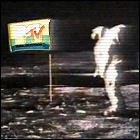 MTV (Music Television), a New York City-based cable channel, goes on the air at one minute after midnight, premiering with the Buggles’ music video “Video Killed The Radio Star”. This heralds the beginning of the dominance of music videos in the music industry, though at first MTV’s format is to concentrate heavily on mainstream rock, new wave and semi-obscure acts (Split Enz features twice within the first 30 videos played). MTV quickly comes in for criticism that black artists are sorely underrepresented in its rotation. In later years, MTV uses its influence with younger viewers to raise political awareness, though it will eventually replace much of its music-related programming with game shows, reality shows, and other programming, until the “music” of “Music Television” becomes somewhat misleading.
MTV (Music Television), a New York City-based cable channel, goes on the air at one minute after midnight, premiering with the Buggles’ music video “Video Killed The Radio Star”. This heralds the beginning of the dominance of music videos in the music industry, though at first MTV’s format is to concentrate heavily on mainstream rock, new wave and semi-obscure acts (Split Enz features twice within the first 30 videos played). MTV quickly comes in for criticism that black artists are sorely underrepresented in its rotation. In later years, MTV uses its influence with younger viewers to raise political awareness, though it will eventually replace much of its music-related programming with game shows, reality shows, and other programming, until the “music” of “Music Television” becomes somewhat misleading.
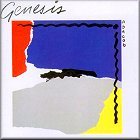 Charisma Records and Atlantic Records release the 11th album by Genesis, Abacab, featuring the singles “No Reply At All”, “Abacab” and “Man On The Corner”.
Charisma Records and Atlantic Records release the 11th album by Genesis, Abacab, featuring the singles “No Reply At All”, “Abacab” and “Man On The Corner”. ![]()
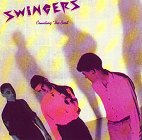 Mushroom Records releases The Swingers’ album Counting The Beat; the band is led by founding Split Enz frontman Phil Judd.
Mushroom Records releases The Swingers’ album Counting The Beat; the band is led by founding Split Enz frontman Phil Judd. ![]()
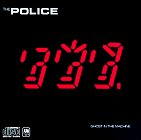 A&M Records releases the fourth album by The Police, Ghost In The Machine, featuring the singles “Every Little Thing She Does Is Magic” and “Spirits In The Material World”.
A&M Records releases the fourth album by The Police, Ghost In The Machine, featuring the singles “Every Little Thing She Does Is Magic” and “Spirits In The Material World”. ![]()
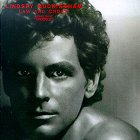 Decca Records releases the first solo album by Lindsey Buckingham, Long Distance Voyager, featuring the single “Trouble”.
Decca Records releases the first solo album by Lindsey Buckingham, Long Distance Voyager, featuring the single “Trouble”. ![]()
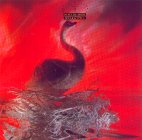 Mute Records releases the first Depeche Mode album, Speak & Spell, featuring the singles “New Life”, “Dreaming Of Me” and “Just Can’t Get Enough”.
Mute Records releases the first Depeche Mode album, Speak & Spell, featuring the singles “New Life”, “Dreaming Of Me” and “Just Can’t Get Enough”. ![]()
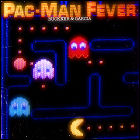 CBS unleashes a particularly virulent strain of Pac-Man Fever into record stores, courtesy of rock group Buckner & Garcia, and there is no cure in sight. With musical odes to the arcade games Pac-Man, Donkey Kong, Defender, Frogger, Asteroids, Berzerk, Centipede, and even the relatively obscure coin-op Mouse Trap, this album’s release probably marks the high point of the video game industry “boom” – the apex at which public awareness of video games is at the saturation point, having seeped into the rest of pop culture.
CBS unleashes a particularly virulent strain of Pac-Man Fever into record stores, courtesy of rock group Buckner & Garcia, and there is no cure in sight. With musical odes to the arcade games Pac-Man, Donkey Kong, Defender, Frogger, Asteroids, Berzerk, Centipede, and even the relatively obscure coin-op Mouse Trap, this album’s release probably marks the high point of the video game industry “boom” – the apex at which public awareness of video games is at the saturation point, having seeped into the rest of pop culture. ![]()
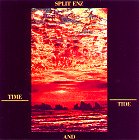 The seventh album from Split Enz, Time + Tide, is released to a strong start, going gold within two weeks in Australia alone. With most of the songs written by Tim Finn, the album is surprisingly autobiographical. The album’s lead single, the sea-shanty-styled “Six Months In A Leaky Boat”, is chased off the airwaves by radio program directors when it’s interpreted as a commentary on the Falkland Islands War (despite the fact that the song was written and recorded months before the conflict ever took place).
The seventh album from Split Enz, Time + Tide, is released to a strong start, going gold within two weeks in Australia alone. With most of the songs written by Tim Finn, the album is surprisingly autobiographical. The album’s lead single, the sea-shanty-styled “Six Months In A Leaky Boat”, is chased off the airwaves by radio program directors when it’s interpreted as a commentary on the Falkland Islands War (despite the fact that the song was written and recorded months before the conflict ever took place). ![]()
 The Alan Parsons Project releases its sixth album, Eye In The Sky, including the hit singles “Eye In The Sky”.
The Alan Parsons Project releases its sixth album, Eye In The Sky, including the hit singles “Eye In The Sky”. ![]()
 Capitol Records releases the second Duran Duran album, Rio, featuring the singles “Rio”, “Hungry Like The Wolf”, “Save A Prayer” and “My Own Way”.
Capitol Records releases the second Duran Duran album, Rio, featuring the singles “Rio”, “Hungry Like The Wolf”, “Save A Prayer” and “My Own Way”. ![]()
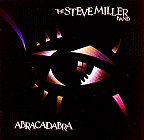 Capitol Records releases the 12th album by The Steve Miller Band, Abracadabra, featuring the singles “Abracadabra” and “Cool Magic”.
Capitol Records releases the 12th album by The Steve Miller Band, Abracadabra, featuring the singles “Abracadabra” and “Cool Magic”. ![]()